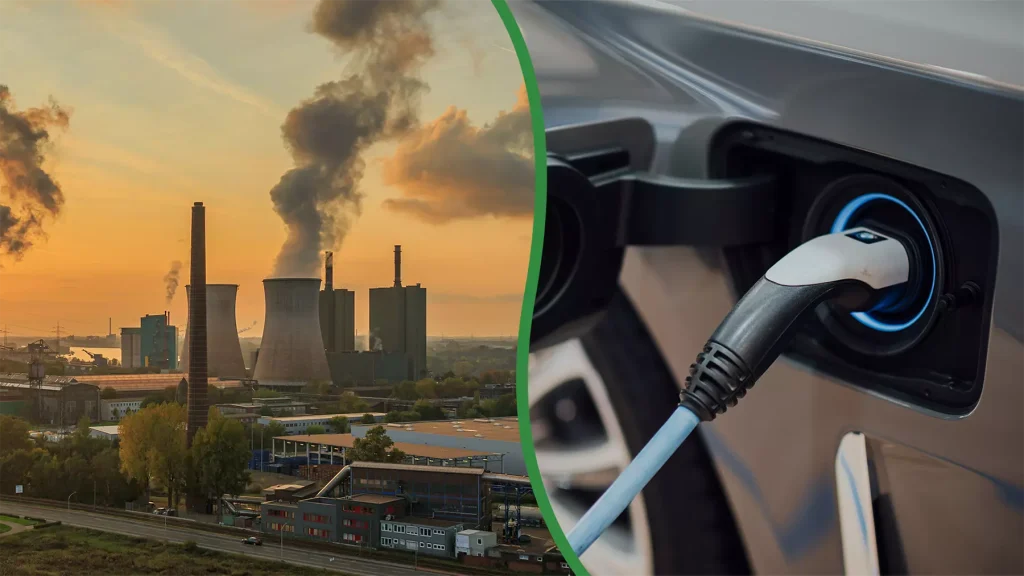The automotive industry is undergoing a transformative shift, largely driven by the rise of electric vehicles (EVs) and their batteries. The impact of EV batteries on the automotive industry is profound, influencing everything from manufacturing processes to consumer preferences. As automakers pivot towards sustainable solutions, understanding the role of EV batteries becomes crucial. This article delves into the technological advancements, environmental benefits, and market trends associated with EV batteries, shedding light on their significance in shaping the future of transportation.
In the following sections, we will explore how EV batteries are revolutionizing vehicle design and performance, enabling longer ranges and faster charging times. We will also discuss the environmental implications of battery production and disposal, highlighting the importance of sustainable practices in the industry. Furthermore, we will examine the economic impact of EV batteries, including job creation and the shift in supply chains, as well as the challenges and opportunities that lie ahead for manufacturers and consumers alike.
As you continue reading, you will gain insights into the latest innovations in battery technology, the role of government policies in promoting EV adoption, and the future outlook for the automotive industry in a world increasingly focused on sustainability. Join us on this journey to understand the critical impact of EV batteries on the automotive landscape and discover how they are paving the way for a greener, more efficient future.
As the automotive industry shifts towards electric vehicles (EVs), the role of EV batteries has become increasingly significant. This article explores various aspects of how EV batteries are transforming the automotive landscape.
Advancements in Battery Technology
Recent advancements in battery technology have played a crucial role in enhancing the performance and efficiency of electric vehicles. Innovations such as solid-state batteries and lithium-sulfur batteries promise to deliver higher energy densities, faster charging times, and improved safety. These developments not only increase the range of EVs but also reduce the overall cost of battery production, making electric vehicles more accessible to consumers.
Moreover, the integration of artificial intelligence in battery management systems allows for better monitoring and optimization of battery performance. This ensures that EVs can operate at peak efficiency, extending their lifespan and reducing maintenance costs. As battery technology continues to evolve, it is expected to drive further growth in the electric vehicle market.
Environmental Impact and Sustainability
The production and disposal of EV batteries raise important environmental concerns. While electric vehicles are often touted as a greener alternative to traditional combustion engines, the mining of raw materials such as lithium, cobalt, and nickel can have detrimental effects on ecosystems. Sustainable sourcing and recycling of these materials are critical to minimizing the environmental footprint of EV batteries.
Efforts are being made to develop more sustainable battery technologies, including the use of abundant materials and the implementation of closed-loop recycling systems. By addressing these environmental challenges, the automotive industry can ensure that the transition to electric vehicles is not only beneficial for consumers but also for the planet.
Economic Implications for the Automotive Industry
The rise of EV batteries has significant economic implications for the automotive industry. As manufacturers invest heavily in battery production and research, new business models are emerging. Companies are exploring partnerships with battery manufacturers and investing in gigafactories to secure a stable supply of batteries for their electric vehicle lineups.
This shift is also leading to job creation in the battery manufacturing sector, as well as in related fields such as recycling and research. However, traditional automotive jobs may be at risk as the industry adapts to new technologies. The economic landscape of the automotive industry is evolving, and stakeholders must navigate these changes to remain competitive.
Consumer Adoption and Market Trends
Consumer adoption of electric vehicles is heavily influenced by the performance and affordability of EV batteries. As battery prices continue to decline, more consumers are considering electric vehicles as a viable option. Additionally, advancements in charging infrastructure are addressing range anxiety, making EVs more appealing to a broader audience.
Market trends indicate a growing preference for electric vehicles, with many automakers committing to electrifying their fleets in the coming years. This shift is not only driven by consumer demand but also by regulatory pressures aimed at reducing carbon emissions. As the market evolves, understanding consumer behavior and preferences will be essential for manufacturers to succeed in the electric vehicle space.
Future Outlook and Innovations
The future of EV batteries is promising, with ongoing research and development aimed at overcoming current limitations. Innovations such as battery swapping technology and wireless charging are being explored to enhance the user experience and convenience of electric vehicles. Furthermore, the potential for vehicle-to-grid technology could revolutionize how energy is managed and consumed.
As the automotive industry continues to embrace electrification, the role of EV batteries will be pivotal in shaping the future of transportation. Collaboration between automakers, technology companies, and governments will be essential to drive innovation and ensure a sustainable transition to electric mobility.
The rise of electric vehicles (EVs) has significantly transformed the automotive industry, with EV batteries playing a crucial role in this evolution. This summary outlines the key impacts of EV batteries on various aspects of the automotive sector.
| Aspect | Impact |
|---|---|
| Market Growth | EV batteries have driven substantial growth in the electric vehicle market, leading to increased competition among manufacturers. |
| Technological Advancements | Advancements in battery technology, such as lithium-ion and solid-state batteries, have improved energy density, charging speed, and overall vehicle performance. |
| Supply Chain Dynamics | The demand for EV batteries has reshaped supply chains, leading to new partnerships and sourcing strategies for raw materials like lithium, cobalt, and nickel. |
| Environmental Impact | While EVs reduce greenhouse gas emissions during operation, the production and disposal of batteries raise environmental concerns that the industry must address. |
| Consumer Adoption | Improved battery technology has led to longer ranges and shorter charging times, enhancing consumer confidence and accelerating adoption of electric vehicles. |
| Regulatory Changes | Governments are implementing stricter emissions regulations, which are pushing automakers to invest more in EV battery technology and production. |
| Cost Considerations | The cost of EV batteries has been decreasing, making electric vehicles more affordable and accessible to a broader range of consumers. |
In conclusion, EV batteries are at the forefront of the automotive industry’s transformation, influencing market dynamics, technological innovation, and environmental considerations. As the industry continues to evolve, the role of batteries will remain pivotal in shaping the future of transportation.



